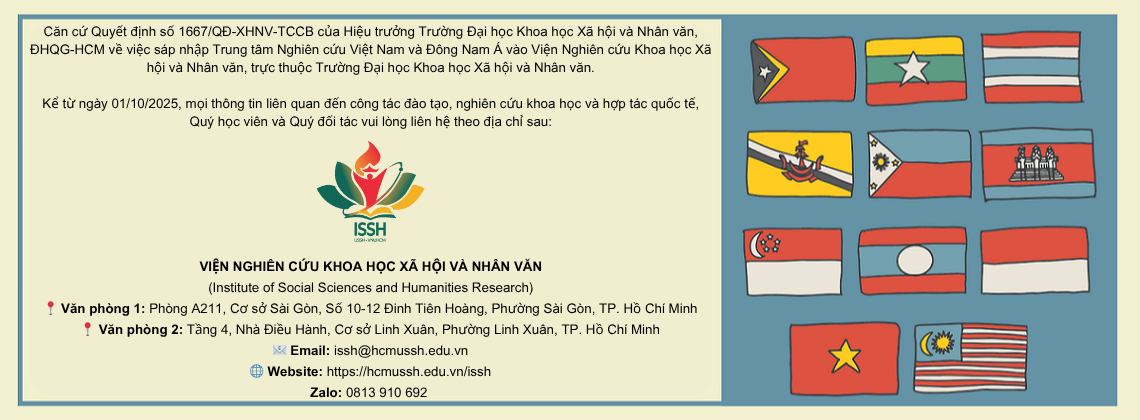SEMINAR BY PROF. KOJI DOMON FROM WASEDA UNIVERSITY, JAPAN
, 27/02/2015 10:02The Center for Vietnamese and Southeast Asian Studies hosted a seminar on “A survey on characteristics of Japanese academic job market and evaluation” led by Prof. Koji Domon from the Waseda University, Japan, at the University of Social Sciences and Humanities (USSH), Vietnam National University – HCMC on February 03, 2015.
The participants included graduates, post graduates, and several members of the teaching staff at USSH. Dr. Tran Dinh Lam, Director of the Center for Vietnamese and Southeast Asian Studies, also attended the seminar. Prof. Koji Domon reported the data and results of his study on Japanese scholars, featuring funds for education and scientific research, reallocation of workplace for Japanese professors, and evaluation of researchers during the past three years. According to the professor, one of the issues that arouse concerns is plagiarism. How to build up an academic environment with integrity and quality is a question of not only the education community but also the whole society. Similarly, that is an issue of not only one country but also the whole world.
(1).jpg)
Prof. Koji Domon, Dr. Tran Dinh Lam and other participants at the seminar.
To address such a problem, the Japanese government has learnt modern educational systems of European countries, mainly of Germany’s, since the Minji era. The reason Japan chose to learn from Germany is that the latter’s constitution shares many features with the former’s. Japanese people are aware that only development based on their own internal strength is sustainable and independent from others. Also, they assert that only advancement with knowledge will help them build up an independent economy, culture and society, and intellectuals are the ones who play an essential role in the future of their country. As a result, the Japanese government always respects and listens to ideas proposed by those people in planning development strategies for the country. To make them devoted to the country, a very good treatment policy has been implemented. Annually, the government spends 35.6% on the research budget (mainly for public institutions). Consequently, Japanese scholars enjoy pretty high salaries and a good standard of living so they can follow their interest without let or hindrance. The proportion of Japanese scholars doing research within the country is very high, accounting for 79.9%, whereas only 1.6% of them conduct studies overseas. Besides, Prof. Koji Domon’s research also indicated that many studies from Japan are among top citations, together with those from the US, the UK, France and Germany. Japan also comes third, only after the US and the UK, in terms of the proportion of top researchers in the world.
Apart from good policies in wages and a large budget for research, Japan favors researchers with “Lifetime jobs”, which create stable work for scholars, freeing them from worrying about their jobs. Instead, they just need to focus on their research activities.
Additionally, the professor also expressed his concern over the academic community in Vietnam. In fact, Vietnamese professors have to do research and earn their living at the same time, which makes the quality of their studies not very high. According to the professor, the Vietnamese government should have a better orientation toward education since its advancement not only means academic development but also involves all the other aspects, including culture, economics, society and even the country’s destiny. If intellectuals are not aware of their key role in promoting the country’s progress, that issue should be reconsidered. Moreover, Vietnam needs to admit that a country’s prosperity greatly depends on favorable policies for academic affairs in order to open up opportunities for enthusiastic scholars to devote themselves to their country and feel respectful. If that can be done, Vietnam’s development strategies can have good effects, helping it avoid dependence on big countries, such as China now.














